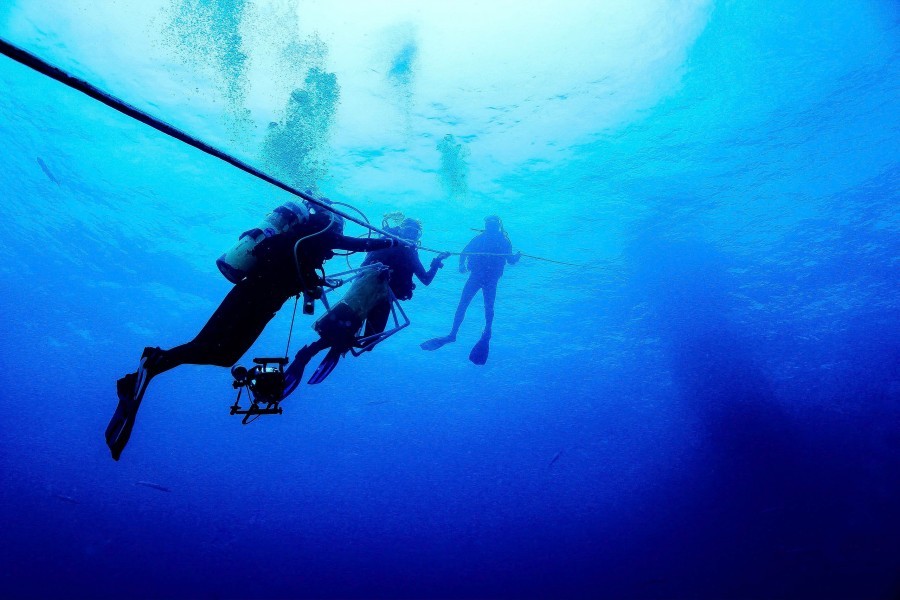Sea level rise in the face of climate change
There is broad scientific consensus that global climate is warming largely as a result of increased concentrations of carbon dioxide and other greenhouse gases in the atmosphere. Sea level rise in the coming decades is anticipated to be a major effect of climate change with mostly negative impacts for many coastal regions, including Florida.
Managing the impacts of sea level rise will require adapting human activities in the coming decades through decisive policies, programs and actions so that critical human systems—communities, economies, emergency response systems—and natural resources—wetlands, coastal ecosystems, fisheries—can continue to function effectively as ‘resilient’ systems in the face of climate change.
Scientists advise that many anticipated impacts from sea level rise can be addressed through early planning and well-designed adaptive responses.
The Marine Policy Institute undertakes research on policy tools and opportunities that can help local Florida governments develop strategies to deal with climate-associated sea level rise and adapt to its impacts.
In 2009, MPI published a synopsis entitled “Policy Tools for Local Adaptation to Sea Level Rise.” The synopsis condenses main issues and observations from the full report and abstracts the full assessment in the following sections:
- Basics about climate change science and sea level rise.
- Highlights from policy tools for local adaptation to sea level rise.
- Key principles of adaptation from emerging experience.
- Leadership opportunities going forward.
See sea level rise in action with an interactive map of sea level rise in Sarasota or take our short survey on sea level rise and climate change.
Sea level rise activity elsewhere
The Marine Policy Institute (MPI) at Mote Marine Laboratory has been monitoring how other coastal jurisdictions are responding to climate-related sea level rise with adaptation policies and actions to address negative impacts over the near and long term.
MPI has researched key aspects of these initiatives and periodically prepares summaries of the processes and policy responses underway. The objective is to help provide information about experiences and lessons being learned elsewhere to help local decision makers along Florida’s Gulf Coast stay informed about the latest sea level rise adaptation strategies.
San Fransisco, CA
Chula Vista, CA
StormSmart
StormSmart Connect: A Gulf of Mexico Network on Coastal Coordination Abstract by Luke Maier, Intern with Mote’s Marine Policy Institute
The Marine Policy Institute (MPI) monitors some of the Gulf of Mexico Alliance’s (GoMA) web tools to keep track of what other coastal communities, counties, and states in the Gulf of Mexico are doing to address climate change, especially concerning sea level rise. The community is encouraged to also utilize these web tools.
GoMA began with an agreement among the Governors of the 5 Gulf states, including Florida. GoMA focuses on five main categories, with Mote’s MPI being most involved in the Coastal Community Resilience and Community of Practice working groups to contribute to regional discourse on sea level rise.The GoMA Governors’ Action Plan 2, adopted by the five then governors of the Gulf states, called for an online intercoastal information network to be set up; this role has now been fulfilled by StormSmart. Floridian coastal communities can especially benefit from connecting to StormSmart, as it facilitates storm planning and sea level rise planning—environmental developments particularly pertinent to this area.
StormSmart’s primary uses:
- Connect with coastal decision makers and disaster planners.
- Spread information about coastal research and events.
- Act as a repository for research and information resources.
StormSmart’s tools:
- Links to major coastal storm and climate chance planning tools and research.
- Online collaboration networks, large and small.
- Weekly updates on regional science activities in the Gulf of Mexico States.
- Calendar of collaboration events with GoMA.
- State-by-state disaster response resource inventories of GoMA states.
- Document and research report repository.
For instance, StormSmart contains links to the Southwest Florida Regional Planning Council and Charlotte Harbor National Estuary Program’s Charlotte Harbor Vulnerability Assessment, which recommends adaption tools for sea level rise and other climate coping.StormSmart also lists tools such as Hazard Identification and Mitigation reports specific to each member state.
The network currently supports 48 networking groups and 571 members from across the nation with most members coming from the Gulf states. The network houses working groups that focus on certain topics. Connect at: www.stormsmart.org.
Presentations
Sea Level Change: moving toward adaptation presented by Barbara Lausche, Director, Marine Policy Institute







